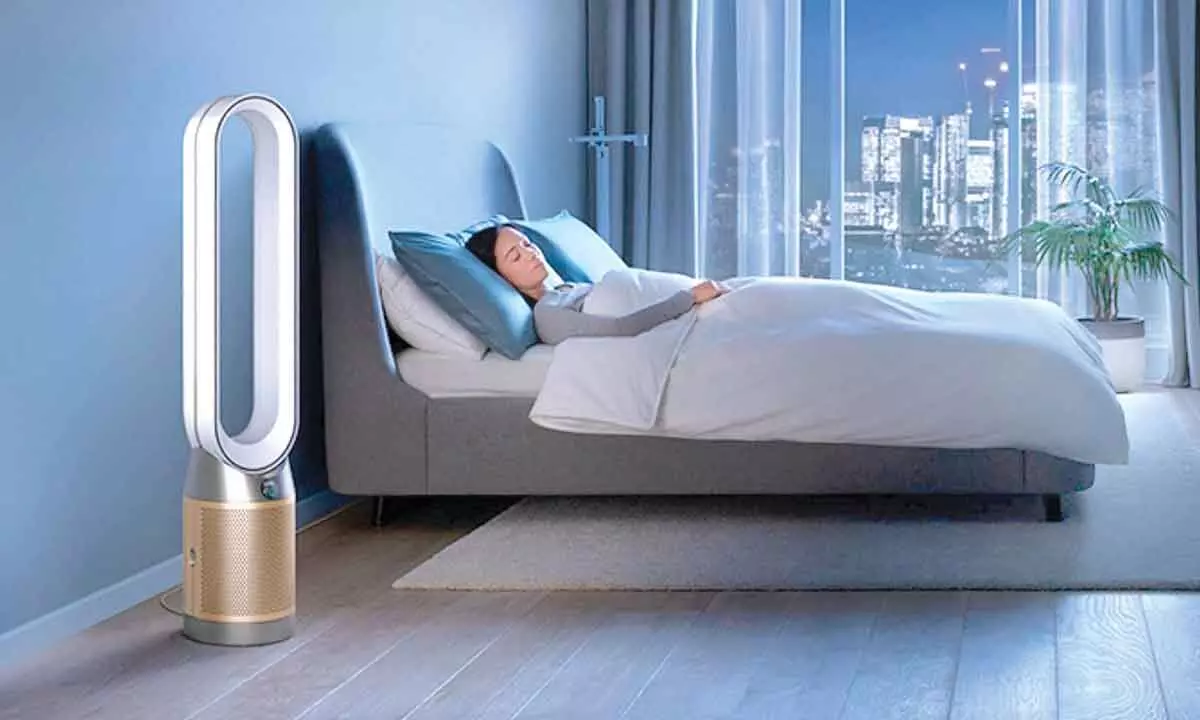Your bedroom could be sabotaging your sleep, here’s why
World Sleep Day (March 15) serves as a wake-up call to prioritise sleep hygiene. While we focus on comfort, our mattresses and bedding can harbor surprising amounts of bacteria and allergens
image for illustrative purpose

Regularly washing bedding, vacuuming thoroughly, and using an air purifier can significantly improve the cleanliness and air quality of your sleep environment. By creating a cleaner and healthier bedroom haven, you'll be well on your way to achieving a more restful and rejuvenating night's sleep
Sleep often takes a backseat in the hustle and bustle of our daily lives. Yet, it's the foundation of our well-being, impacting not just our physical health but also our mental acuity. That's where World Sleep Day (March 15) comes in as a gentle reminder about the importance of prioritising healthy sleep habits and cultivating a sleep environment conducive to rest and rejuvenation. But do you know that even in the sanctuary of your bedroom, dangers lurk beneath the surface and in your bedroom air, compromising the very essence of a good night's sleep?
A recent report by Amerisleep has brought to light a concerning revelation regarding our sleep environment. An unwashed pillowcase can gather 3 million bacteria in just one week, making it 17,000 times more contaminated than a toilet seat. Similarly, an unwashed bedsheet can harbour 24,631 times more bacteria than a bathroom doorknob. Another study revealed that air pollution, a warm bedroom, and high levels of carbon dioxide and ambient noise may all adversely affect our ability to get a good night’s sleep.
These findings serve as a reminder of the importance of a clean sleep environment by maintaining the hygiene of your bed and bedding, as well as improving the bedroom air quality.
How can we enhance sleep hygiene?
Your mattress, that seemingly innocuous haven of comfort, could be harbouring a thriving ecosystem of microscopic life including dust, dust mites, bacteria, viruses, pollen, and other allergens.
Joanne Kang, Lead Research Scientist in Microbiology at Dyson, sheds light on this overlooked aspect and offers some tips to help you achieve a cleaner bedroom environment through consistent cleaning and vacuuming to remove as much dust and allergens from the bedroom.
Wash Away the Worries: Washing sheets, pillowcases, and blankets in hot water that is at least 140°F will help to break down and reduce allergens. It's recommended that you launder and change your bedding once a week to remove microscopic skin flakes and keep dust and allergens at bay.
Power up the Clean: Dust mites might be small, but they’re tenacious as they cling to the fibres deep in your mattress, which can make them difficult to remove. The cordless vacuums are equipped with up to 240AW of powerful suction and with the Hair screw tool attached, can effectively remove dust embedded in your mattress. It is also a good practice to vacuum pillows, cushions or soft toys to remove skin flakes/ dander, dust mites and allergens present.
Reach every nook and cranny: Once you’ve deep cleaned your mattress, clean around the edge and crevices to remove any hidden dust. Don’t forget under your bed and on cupboards or wardrobes as dust mites thrive in dark, warm, and humid areas with plenty of dust and skin flakes that often remain undisturbed.
How can we improve the bedroom’s air quality?
We spend one-third of our time sleeping, making the bedroom where we spend most of our time, but it isn't always a safe haven, and pollution can be generated indoors through day-to-day activities such as cooking, cleaning with cleaning solvents, and using deodorants and scented candles. The amount of exposure to these pollutants can be managed and limited through air purifiers. By placing an appropriate air purifier with accurate and efficient sensing capabilities, harmful pollutants can be filtered, thus enhancing indoor air quality of your bedroom, promoting a healthier environment for a better sleep.
Air purifiers which are designed to help control indoor pollution by capturing and removing pollutants. It has a fully sealed three-phase filtration system, which ensures that 99.95% of particles as small as 0.1 microns, including visible dust particles, pollen, allergens, and bacteria, are trapped inside the machine..
Moreover, the Dyson air purifiers are acoustically engineered while maintaining purification performance. You can also put the machine on night mode which further makes it quieter for a sound sleep.
So, if you need to improve your sleeping environment, incorporate regular vacuuming and use an air purifier as it significantly reduces the presence of dust, allergens and pollutants. By taking these simple steps, you can create a more hygienic and comfortable sleeping space for a restful night's sleep.
(The author is Lead Research Scientiest in Microbiology at Dyson)

